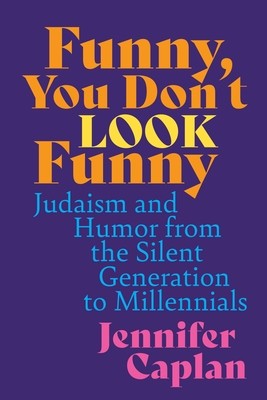
- We will send in 10–14 business days.
- Author: Jennifer Caplan
- Publisher: Wayne State University Press
- ISBN-10: 0814347312
- ISBN-13: 9780814347317
- Format: 15.2 x 22.9 x 1.1 cm, minkšti viršeliai
- Language: English
- SAVE -10% with code: EXTRA
Reviews
Description
In this comprehensive approach to Jewish humor focused on the relationship between humor and American Jewish practice, Jennifer Caplan calls us to adopt a more expansive view of what it means to "do Jewish," revealing that American Jews have turned, and continue to turn, to humor as a cultural touchstone. Caplan frames the book around four generations of Jewish Americans from the Silent Generation to Millennials, highlighting a shift from the utilization of Jewish-specific markers to American-specific markers.
Jewish humor operates as a system of meaning-making for many Jewish Americans. By mapping humor onto both the generational identity of those making it and the use of Judaism within it, new insights about the development of American Judaism emerge. Caplan's explication is innovative and insightful, engaging with scholarly discourse across Jewish studies and Jewish American history; it includes the work of Joseph Heller, Larry David, Woody Allen, Seinfeld, the Coen brothers films, and Broad City. This example of well-informed scholarship begins with an explanation of what makes Jewish humor Jewish and why Jewish humor is such a visible phenomenon. Offering ample evidence and examples along the way, Caplan guides readers through a series of phenomenological and ideological changes across generations, concluding with commentary regarding the potential influences on Jewish humor of later Millennials, Gen Z, and beyond.EXTRA 10 % discount with code: EXTRA
The promotion ends in 22d.17:53:24
The discount code is valid when purchasing from 10 €. Discounts do not stack.
- Author: Jennifer Caplan
- Publisher: Wayne State University Press
- ISBN-10: 0814347312
- ISBN-13: 9780814347317
- Format: 15.2 x 22.9 x 1.1 cm, minkšti viršeliai
- Language: English English
In this comprehensive approach to Jewish humor focused on the relationship between humor and American Jewish practice, Jennifer Caplan calls us to adopt a more expansive view of what it means to "do Jewish," revealing that American Jews have turned, and continue to turn, to humor as a cultural touchstone. Caplan frames the book around four generations of Jewish Americans from the Silent Generation to Millennials, highlighting a shift from the utilization of Jewish-specific markers to American-specific markers.
Jewish humor operates as a system of meaning-making for many Jewish Americans. By mapping humor onto both the generational identity of those making it and the use of Judaism within it, new insights about the development of American Judaism emerge. Caplan's explication is innovative and insightful, engaging with scholarly discourse across Jewish studies and Jewish American history; it includes the work of Joseph Heller, Larry David, Woody Allen, Seinfeld, the Coen brothers films, and Broad City. This example of well-informed scholarship begins with an explanation of what makes Jewish humor Jewish and why Jewish humor is such a visible phenomenon. Offering ample evidence and examples along the way, Caplan guides readers through a series of phenomenological and ideological changes across generations, concluding with commentary regarding the potential influences on Jewish humor of later Millennials, Gen Z, and beyond.

Reviews